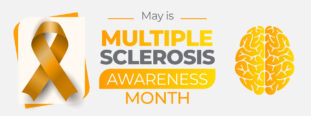Will I need a COVID vaccine booster shot?
Now that a majority of Canadians have now received the required double shot of COVID vaccine, questions have been raised about how long COVID immunity lasts and whether a booster shot will be needed.
While booster shotsd are still being discussed by the National Advisory Committee on Immunization (NACI) in Canada and the U.S. Centers for Disease Control, the U.S. Surgeon has already announced that a booster program will begin later in September. Other countries, such as the U.K., France, Germany and Israel, have also announced that booster shots will be made available to high-risk groups. In Canada, Ontario plans to provide boosters to vulnerable people, and Quebec and Saskatchewan have said that additional shots will be available for those who received mixed doses.
Are booster shots necessary?
The original trials of the mRNA vaccines (Pfizer and Moderna) reported that vaccination was about 95% effective in preventing COVID disease. Since then, a number of studies have suggested that COVID immunity – based on vaccine-induced antibody levels – diminishes over time. This finding is somewhat controversial. Vaccines stimulate the body to produce antibodies, so vaccine response is usually evaluated by checking for these antibodies. However, antibody production is necessarily a short-term phenomenon – the body cannot have high levels of antibodies to every disease and vaccine a person has been exposed to. What is more important is the immune memory – the ability of the immune system to respond rapidly to an infection. This response is due to memory T and B cells, which are not typically measured when evaluating a vaccine response.
A better guide to immunity is whether more vaccinated people are getting sick with COVID. A study in Israel reported that people who were vaccinated in January had a 2-fold higher risk of COVID infection compared to people who were vaccinated in April (Mizrahi and colleagues. medRxiv preprint epublished July 31, 2021). However, this likely overestimates the decline in immunity since the estimate does not appear to factor in the longer time period that the January group could have contracted COVID.
Other studies examining the declining effectiveness of vaccines over time have not actually looked at that. Rather, they have shown that vaccines are less effective against the Delta variant. For example, a Mayo Clinic study found that the vaccines were less effective (42-76%) in preventing infection from the Delta variant (Puranik and colleagues. medRxiv preprint epublished August 9, 2021). However, vaccines appear to remain highly effective (over 75%) in preventing severe COVID.
It is clear that the Delta variant is more infectious, so even fully vaccinated people are at risk of catching COVID. A further concern is that vaccinated people may acquire the virus without appearing ill, so they can inadvertently spread the virus. However, the rising number of COVID cases is likely due largely to a relaxation of public health measures – not wearing masks, not maintaining distance from people – rather than a declining effectiveness of the vaccines.
What remains unknown is whether a booster shot will provide added immunity, or enough of a boost to be worth the effort. If the main goal is to prevent severe COVID (i.e. hospitalizations and death), then the two-dose regimen seems to be adequately effective and public health efforts might be better directed elsewhere. (Other groups, such as the World Health Organization, have raised the ethical issue of three vaccinations when most people in developing countries have not had one.)
Most people with multiple sclerosis will likely have sufficient coverage with their two-dose vaccine regimen, although they may opt to get a booster shot if one becomes available. It would be prudent, however, to continue wearing a mask in public and maintaining a two-metre distance. The situation is perhaps more urgent for people taking certain disease-modifying therapies (e.g. Ocrevus) that are known to reduce the effectiveness of vaccines. For these people, it may be advisable to talk to your neurologist about whether your treatment could have affected your COVID coverage and whether you should sign up for a booster shot if it becomes available to you.
Share this article
Facebook Twitter pin it! Email
Related Posts
Back





